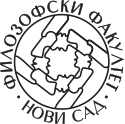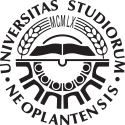- Pregledni rečnik komparatističke terminologije u književnosti i kulturi, ur. Bojana Stojanović Pantović, Miodrag Radović, Vladimir Gvozden, Novi Sad, 2011. (Original title)
- Moderna tumačenja književnosti, Beograd, 1981. (Original title)
- Antoine Compagnon, Le Démon de la théorie (Seuil, 1998).
- Zoran Konstantivović, Polazišta, N. Sad, 2000 (pogl. „Šta su Srbi čitali čitajući Getea“, „Intertekst i alteritet“). (Original title)
- Raymond Williams, Literature, in Keywords, 1976; ; Roland Barthes, The Death of the Author, 1967;
- Sigmund Freud, Dostoevsky and Parricide, 1928; Yury Tynyanov, On Literary Evolution, 1927; Viktor Shklovsky , “Art as Device”, 1917;
- Tzvetan Todorov, The Poetics of Prose (1971)
- Oskar Walzel. The Mutual Illumination of Various Arts [1917]
- Walter Benjamin, “The Task of the Translator” [1923]
- Gvozden Eror, „Pojam posrednika u komparatistici“, Književna istorija, br. 102, 1997, 131-149. (Original title)
- Gerald Prince, A dictionary of narratology, 1987
- Vladimir Gvozden,Činovi prisvajanja: od teorije ka pragmatici teksta, N. Sad, 2005 (pogl. „Književna imagologija u perspektivi“, „Komparativna književnost i vizuelna kultura“); Književnost, kultura, utopija, Novi Sad, 2011 (pogl.“Priroda kritike u doba kulturalizma“, str. 85-103). (Original title)
|

